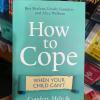Dear Fareed,
I am a big fan of yours. I routinely watch your GPS Show on CNN and read your articles on international affairs with great interest. However, I am deeply disappointed by your recent column titled "Why America's obsession with STEM education is dangerous" in the Washington Post. Your column is simply misguided, and a plain insult to scientists, engineers and educators. You are an influential journalist and I am worried that you have done a disservice to the scientific community of America. You stated:
America's last bipartisan cause is this: A liberal education is irrelevant, and technical training is the new path forward. It is the only way, we are told, to ensure that Americans survive in an age defined by technology and shaped by global competition.
There is not a single shred of evidence in your assertion. By making these sweeping claims, you undermined one of the critical challenges America faces. Below are some of the issues that you raised in your column that concern STEM professionals and educators:
You have created a divide that never existed between STEM and liberal arts education.
You made a broad sweeping statement that Americans are trying to mimic the Asian educational system. This is an insult to all educators in the country.
You completely missed the point that America is not producing enough qualified people work in the technical fields.
You have assumed STEM as a narrow education.
Fareed, can you name at least one scientist or an engineer, who speaks against liberal education? I have been in this field for over 20 years and I do not know of any educators, engineers, scientists or policy makers, who advocate against liberal education. To my knowledge, in the K-12 system, no school has reduced the amount of time allotted to English or other social science subjects in lieu of math. In the universities all engineering and science students are required to take a certain number of GE courses. Cal Poly Pomona (where I work), which is one of the 23 California State Universities, has a top ranking, nationally recognized engineering program. Engineering and science students at Cal Poly Pomona take 72 units of GE courses, which is over 37% of their total course work load. It is such a high ratio, students are actually missing out on some essential technical content. So let us not create a problem that never existed. No one is eliminating liberal education courses and replacing them with STEM programs.
You talked about rote-memorization and test taking. Do you really believe that we, the science and engineering educators want our students to learn by memorization? I would love to invite to you visit one of the classrooms of hundreds of schools teachers I work with on engaging students through robotics and watch what young children do. They don't memorize steps. They don't use cookie-cutter approach. They don't just build robots mindlessly. These students design, build, program, collaborate in teams, write essays, sketch their creations, critically think their way through problems, and present their work. This is not just STEM education. This is integration of STEM with everything else. Math, Physics and engineering used to be boring and dry. Many organizations such as PLTW, Code.org and STEM Center USA are pioneering a new approach to make STEM meaningful and relevant. PLTW is now reaching over 6,500 schools in the US and a large number of them are in high need schools. PLTW is making a difference in the life of thousands of students through engaging education.
Perhaps you may also want to visit my university where students are engaged in creative design and entrepreneurial projects. Without understanding what goes into today's hands-on STEM education initiatives, and making simplistic assumptions such as, "Americans should be careful before they try to mimic Asian educational systems", you insult thousands of dedicated STEM educators. I am not big fan of standardized tests. Most educators do not like current testing approaches. This is true for science and liberal arts educators. Why do you have to blame STEM educators for rote-memorization?
I hope you understand that the real problem is that we do not have enough students going into engineering. Even most of the students who choose engineering majors do not go to graduate school. They go to work after obtaining their undergraduate degree. As a result we have a very large number of faculty in engineering and science field who are foreign born. According to NSF data, academic employment of foreign-born doctorate holders in science & engineering increased continuously from 12% in 1973 to 28% in 2011. In engineering the percentage is 46% and in computer science 51%. There is nothing wrong with hiring foreign born nationals. You and I benefited from this. This is a strength that no other country can claim. But this picture still has a major problem.
There was a time when the best minds flocked to America for graduate education and stayed here, which, in turn, returned the values/education they acquired back into our system. They stayed back in the US not only because of better living conditions but also due to the fact that there was not many opportunities for them back home. With Internet and globalization, the world is truly becoming flat. Opportunities are abound and many so called third world nations are now rising stars. China has pulled 680 million of people out of poverty in the last 25 years and reduced its extreme-poverty rate from 84% in 1984 to 10% in 2013. There is a strong, growing middle class in China. India has increased the size of its middle class to over 60 million people and expected to expand dramatically. America is no longer the only place where there are opportunities. In fact, some of the best minds in America are now going abroad for better opportunities.
America simply isn't producing enough qualified people in technical fields, from engineers & scientists to programmers & technicians. This is the reason why we should inspire our young generation about science & technology and create a pipeline for future. This in no way reduces the importance of liberal education.
Take a look at the data from National Center for Education Statistics - Of the 1,791,000 bachelor's degrees conferred in 2011-12 the greatest numbers of degrees went to non-STEM fields (84%) with business alone accounting for 20%. Computer science and engineering majors constituted just 8.1%. This is lower than the 8.8% in 1995. Tech industry boomed after 1995 triggering the need for programmers but the number of computer science and engineering majors have gone down since 1995.
I hope you see, what I am talking about. There is no movement against liberal education in America. Liberal education is strong and thriving. In fact, today's STEM education movement is tying more into traditional liberal education today with a focus on creativity, hands-on experience and team work. There are extremists on both sides who go to great lengths to discredit liberal education, or science & technology education. For example, Florida's Governor Rick Scott thinks it is not necessary to have more anthropologists and Texas's Governor Rick Perry thinks evolution is a just a theory out there. Leaving the extremes, there is a healthy mainstream America that sees the value of liberal and STEM education. I am sure you are part of the mainstream as I am.
Fareed, I do agree with you that American students never performed well in standardized tests in the past (since 1964) and always lagged behind many Asian countries including Singapore and Japan. But this is not the cause for the STEM movement although this data is now used widely. The real reason for STEM initiatives, as I have shown, is the lack of qualified people to work in these fields. We need more STEM graduates in the US. To increase overall numbers, we also need more women in engineering. The STEM movement simply wants to inspire all students about the importance of science and technology through hands-on and meaningful education. This movement is by no means pursuing a "narrow STEM education" as you call it. STEM encompasses everything around us, from natural laws to things we use. You may want to read a little about what scientists and engineers do and see if there is any other subject that has played a more profound role in the development of human society.
Fareed, please listen to what Carl Sagan said to Charlie Rose in his last interview: "We've arranged a society based on science and technology, in which nobody understands anything about science and technology. And this combustible mixture of ignorance and power, sooner or later, is going to blow up in our faces."
Do you still think STEM education is narrow?
America is still the best place for creative minds to take bold initiatives, get support and pursue entrepreneurial dreams. But it won't stay this way for too long if we are complacent.
America does not need more business graduates doing investment banking and stock trading. America does not need more lawyers and lobbyists. America needs more doctors, engineers, scientists and teachers.
Sincerely,
Jawa
Professor of Mechanical Engineering
California State Polytechnic University, Pomona
















